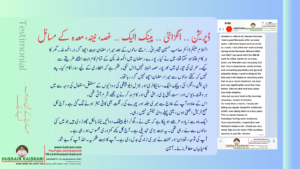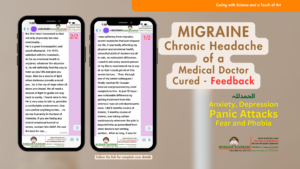Agranulocytosis is an acute condition involving a severe and dangerous leukopenia particularly of neutrophils causing a neutropenia in the circulating blood.[1][2] The meaning of the term can be worked out from the etymology with the prefix ‘a’ denoting a reduction in the number of granulocytes in the blood stream [3].
Concentrations of granulocytes (a class that includes neutrophils, basophils and eosinophils) can often drop to below 500 cells/mm³ of blood), less than a sixth of the reference value of 3-10 x 103 cells/mm³.
Signs and symptoms of Agranulocytosis
Agranulocytosis may be asymptomatic, but may clinically present with sudden fever, rigors and sore throat. Infection of any organ may be rapidly progressive (e.g. pneumonia, urinary tract infection). Septicemia may also progress rapidly.
A large number of drugs have been associated with agranulocytosis, including antiepileptics, antithyroid drugs (carbimazole and methimazole), metamizole, antibiotics (penicillin, chloramphenicol and co-trimoxazole), cytotoxic drugs, gold, NSAIDs (indomethacin, naproxen, phenylbutazone), the antidepressant mirtazapine, and some antipsychotics (the atypical antipsychotic clozapine)[4]. Clozapine users in the US must be nationally registered for monitoring of low WBC and absolute neutrophil counts (ANC). Although the reaction is generally idiosyncratic rather than proportional, experts recommend that patients be told about the symptoms of agranulocytosis-related infection, such as a sore throat and a fever.
Neutropenia and agranulocytosis are associated with gum disease such as gingival bleeding, saliva increase, halitosis, osteoporosis, and destruction of periodontal ligament.
Diagnosis for Agranulocytosis
The diagnosis is made on a complete blood count, a routine blood test performed frequently in general practice and especially in hospital setting.
The neutrophil count is below 500 and can reach 0 cells/mm3. Other series are normally spared. The myelogram (bone marrow sample) shows normocellular blood marrow with promyelocyte’s maturation arrest. To formally diagnose agranulocytosis, other pathologies with a similar presentation must be excluded, such as aplastic anemia, paroxysmal nocturnal hemoglobinuria, myelodysplasia and leukemias. This requires a bone marrow examination.
Classification of Agranulocytosis
The terms agranulocytosis, granulocytopenia and neutropenia are often used interchangeably, although agranulocytosis implies a more severe deficiency than granulocytopenia, and neutropenia implies a deficiency of neutrophils only. To be precise, neutropenia is the term used to describe absolute neutrophil counts (ANC)
- neutrophil — neutropenia
- eosinophil — eosinopenia – not commonly used
- basophil — basopenia – very rarely used
Treatment for Agranulocytosis
In patients who have no symptoms of infection, management consists of close monitoring with serial blood counts, withdrawal of the offending agent (e.g. medication) and general advice on the significance of fever.
Infection in patients with low white blood cell counts is usually treated urgently, and usually includes a broad-spectrum penicillin or cephalosporin (piperacillin-tazobactam, ceftazidime or ticarcillin clavulanate) or meropenem in combination with gentamycin or amikacin.
If the patient remains febrile after 4-5 days and no causative organism for the infection has been identified, antibiotics are generally changed to a glycopeptide (e.g. vancomycin), and subsequently an antifungal agent (e.g. amphotericin B) is added to the regimen. In agranulocytosis, the use of recombinant G-CSF (filgrastim) often results in hematologic recovery.
Transfusion of granulocytes would have been a solution to the problem. However, granulocytes live only ~10 hours in the circulation (for days in spleen or other tissue), which gives a very short-lasting effect. In addition, there are many complications of such a procedure.
Homeopathy Treatment for Agranulocytosis
Keywords: homeopathy, homeopathic, treatment, cure, remedy, remedies, medicine
Homeopathy treats the person as a whole. It means that homeopathic treatment focuses on the patient as a person, as well as his pathological condition. The homeopathic medicines are selected after a full individualizing examination and case-analysis, which includes the medical history of the patient, physical and mental constitution, family history, presenting symptoms, underlying pathology, possible causative factors etc. A miasmatic tendency (predisposition/susceptibility) is also often taken into account for the treatment of chronic conditions. A homeopathy doctor tries to treat more than just the presenting symptoms. The focus is usually on what caused the disease condition? Why ‘this patient’ is sick ‘this way’. The disease diagnosis is important but in homeopathy, the cause of disease is not just probed to the level of bacteria and viruses. Other factors like mental, emotional and physical stress that could predispose a person to illness are also looked for. No a days, even modern medicine also considers a large number of diseases as psychosomatic. The correct homeopathy remedy tries to correct this disease predisposition. The focus is not on curing the disease but to cure the person who is sick, to restore the health. If a disease pathology is not very advanced, homeopathy remedies do give a hope for cure but even in incurable cases, the quality of life can be greatly improved with homeopathic medicines.
The homeopathic remedies (medicines) given below indicate the therapeutic affinity but this is not a complete and definite guide to the homeopathy treatment of this condition. The symptoms listed against each homeopathic remedy may not be directly related to this disease because in homeopathy general symptoms and constitutional indications are also taken into account for selecting a remedy. To study any of the following remedies in more detail, please visit the Materia Medica section at www.kaisrani.com.
None of these medicines should be taken without professional advice and guidance.
Homeopathy Remedies for Agranulocytosis :
Lach.
References
- ^ eMedicine/Stedman Medical Dictionary Lookup!
- ^ http://www.emedicine.com/MED/topic82.htm
- ^ http://www.yourdictionary.com/agranulocytosis
- ^ Diaz, Jaime. How Drugs Influence Behavior. Englewood Cliffs: Prentice Hall, 1996.





